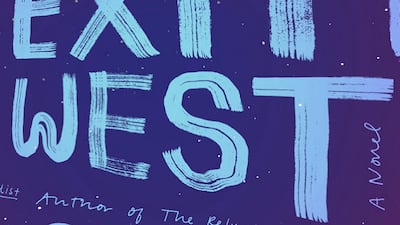"Its concept never quite convinces." "A novel that somehow succeeds despite itself." "There is no real plot to speak of". Looking back at The National's reviews of novels in the running for the Man Booker Prize, to be announced this evening in the UK, it's tricky to find unqualified praise. And it's not that we are unnecessarily or uniquely harsh critics – The Guardian's appraisal of Emily Fridlund's contender, History Of Wolves, was simply "strikingly impotent'. The New York Times, which you would expect to flagwave for virtuoso American writer George Saunders, moaned that Lincoln in the Bardo – by some distance the Man Booker favourite – would have "benefited immensely from some judicious pruning".
All of which might suggest that this is a fallow year for the self-styled "leading prize for quality fiction in English". Far from it. The vast majority of the books on the shortlist share a desire to be audacious with form. So Saunders's novel based on the death of Abraham Lincoln's son is set in the afterlife and pieced together from fragments of "ghostly babble", extracts from newspapers and memoir. Paul Auster's 900-page epic, 4 3 2 1, charts the same character heading down four differing life paths. Mohsin Hamid's exploration of migration, Exit West, might be very much of its time, but its concept is far more slippery: his refugees pass from East to West through magical doors. Both Fiona Mozley and Emily Fridlund's books share child protagonists whose dark stories in the margins of western society are deliberately difficult to grasp.
A line in Ali Smith's daring Autumn seems to sum up the atmosphere of this shortlist: "Here's an old story so new that it's still in the middle of happening, writing itself right now with no knowledge of where or how it'll end."
What such experimentation naturally does, of course, is divide opinion and unsettle readers and critics. Not everything these authors attempt comes off – though we should applaud their desire to try. Certainly it feels as if, in overlooking longlisted – and hugely readable – novels by Zadie Smith, Colson Whitehead, Arundhati Roy or Sebastian Barry, the judges, comprising travel writer/novelist Colin Thubron, novelist-cum-short-story writer Sarah Hall, artist/experimental novelist Tom Phillips and writer/Nabokov academic Lila Azam Zanganeh, have in some way reflected the personal ambitions they have for the loftier possibilities of the literary novel in their choices.
It's not a watertight argument, given that Mike McCormack's Solar Bones, a fine piece of writing presented in a single sentence, didn't make the final cut. But it was telling that chair of judges Baroness Lola Young described all six shortlisted novels as "unique and intrepid books that collectively push against the borders of convention … the ways in which they challenge our thinking is a testament to the power of literature". Whether that means the most obviously unconventional – Saunders's Lincoln in the Bardo – wins, is almost impossible to predict. For all our concerns about its concept being not convincing, we still happened upon "an incredible display of empathetic and wise writing". It's the flawed genius of this year's list. Over to you, Baroness.
______________
Read more:
Paul Auster tops shortlist for Man Booker prize
Book review: Paul Auster’s 4 3 2 1 – four versions of one life
In conversation with Pakistani author Mohsin Hamid
Man Booker Prize 2017: A look at the longlisted nominees
______________

